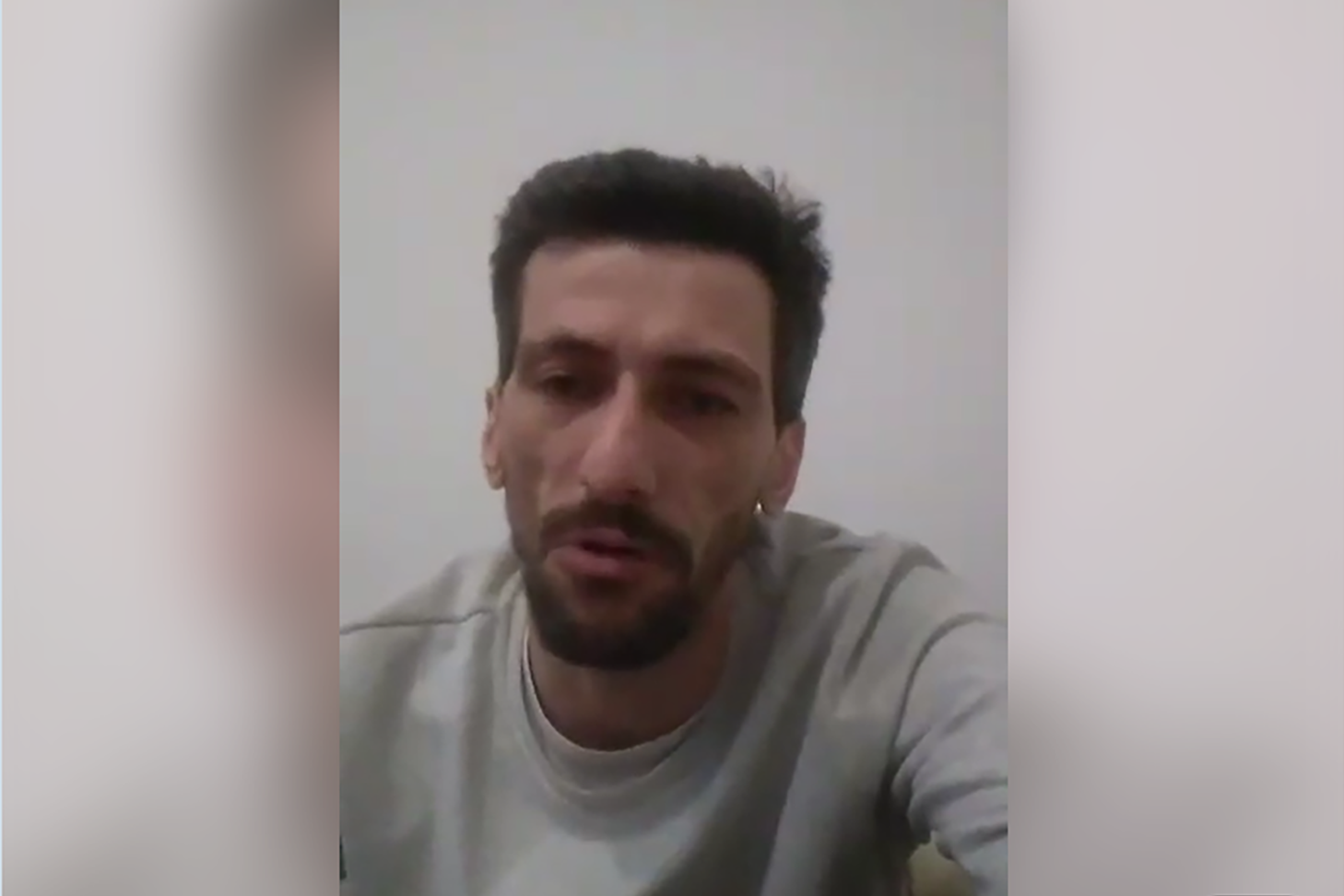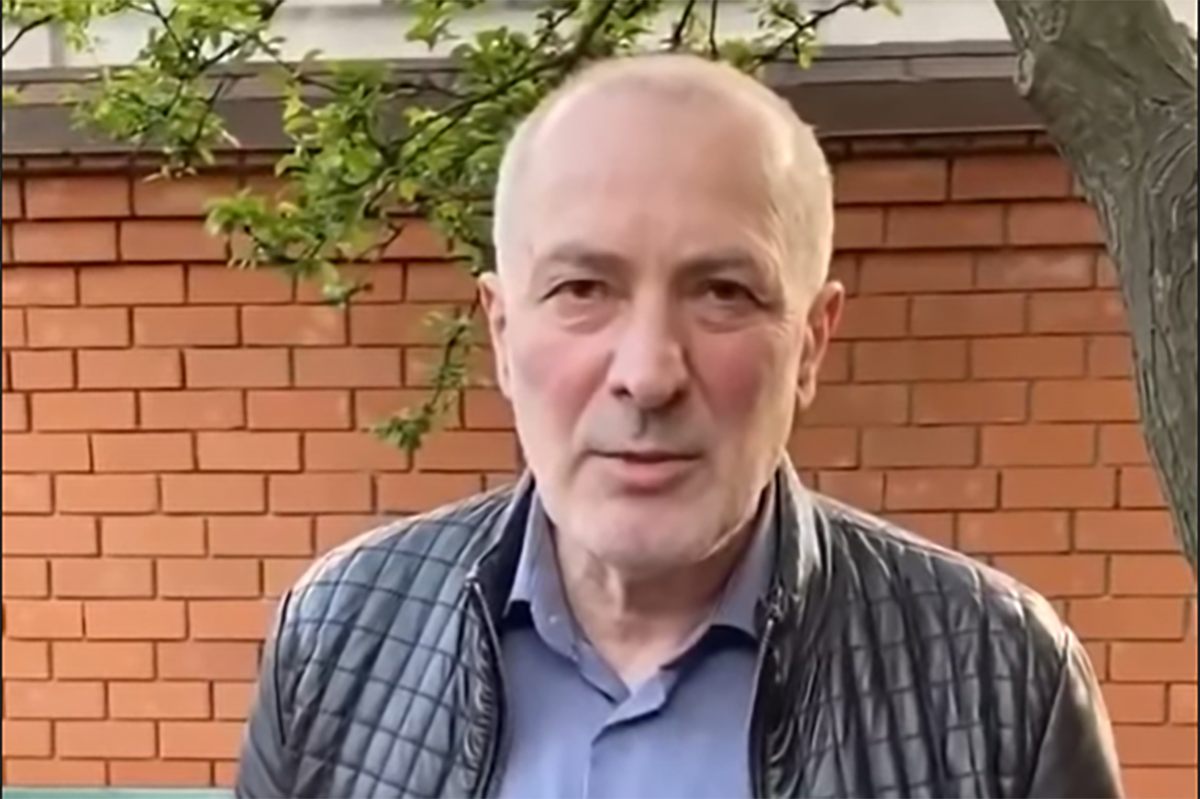
Police in the Russian Republic of North Ossetia–Alania have clashed with protesters demanding a mandatory stay-at-home order be rescinded. Up to 2,000 protesters who reportedly gathered in the capital Vladikavkaz were also calling for the resignation North Ossetian head Vyacheslav Bitarov and the dissolution of the local parliament.
The protest on Monday in the city’s central Freedom Square was eventually dispersed by police in the evening. Sixty-nine protesters were detained.
The protest was reportedly triggered by a decrease in personal incomes, and public anger at a lack of information about the COVID-19 pandemic.
Direct financial aid in the republic has primarily been limited to a one-time payment of ₽3,000 ($39) to 152 households that lost income due to the pandemic.
According to Russian news outlet MBKH Media, some protesters threw stones at riot police units from the National Guard, who used batons against the protestors. Police also reportedly barred a number of journalists from filming the protest prior to the dispersal and forced some to delete their footage.
Владикавказ. Люди забрасывают ОМОН камнями. Видео: «Юг. МБХ медиа» pic.twitter.com/oTmtKzGbTN
— МБХ Медиа (@MBKhMedia) April 20, 2020
North Ossetian authorities announced a ‘regime of obligatory self-isolation’ upon confirming the first two cases of COVID-19 in the republic on 1 April.
Following the dispersal, in the early hours of 21 April, Republic Head Vyacheslav Bitarov published a video statement on Instagram criticising the ‘irresponsible attitude’ of protesters to anti-coronavirus measures.
Later that day, President Putin’s spokesperson, Dmitry Peskov, called Monday’s rally ‘illegal’.
‘Most importantly, it could have negative consequences from an epidemiological point of view’, Peskov added.
An earlier protest against the social impact of anti-coronavirus measures was held in the city of Digora, in the north-west of North Ossetia, on 5 April.
A conspiracy theorist arrested
The protestors’ demands also included the release of Vadim Chyeldiyev.
Chyeldiyev, a prominent opera singer and government critic from North Ossetia, was arrested in Saint Petersburg, where he lives, on 16 April. He was charged with spreading false information about COVID-19.
Chyeldiyev had been calling on North Ossetians on Facebook and Telegram to engage in ‘civil disobedience’ by resisting a stay-at-home order. He also claimed that media reports on COVID-19 were part of a wide-ranging government conspiracy to neutralise opposition forces.
It was also Chyeldiyev who first proposed holding a rally in Vladikavkaz on 20 April.

According to North Ossetian outlet Osnova, Chyeldiyev was also later charged with assaulting a police officer. The assault allegedly happened while he was being transported from Saint Petersburg to Vladikavkaz.
After being remanded into two-months of pre-trial detention while the protest was being held on Monday, Chyeldiyev’s lawyer said he had gone on hunger strike.
On 21 April, he was fined ₽75,000 ($970) for spreading false information. His trial for assaulting a police officer is still pending.
‘We should all be ashamed’
Before Monday’s demonstration, protesters released a written statement calling for Vitaliy Kaloyev, a councillor on the Vladikavkaz City Assembly, to be appointed interim head of the republic.
Kaloyev became internationally known after killing a Swiss air traffic controller whom he held responsible for a plane crash that killed his wife and daughter in 2002. The story inspired the 2017 feature film Aftermath in which the protagonist, based on Kaloyev, was portrayed by Arnold Schwarzenegger.
Kaloyev responded coolly to protestors’ demands, warning that the gathering could ‘backfire’, as many more people could become infected with COVID-19. He urged protesters to think more deeply about what could happen to their elderly relatives.

Local medical authorities, including the head physician at the Republican Hospital in Vladikavkaz, Astan Mitsiyev, and chief medical officer Alan Tibilov, also condemned the protest.
They said that by gathering in groups, protesters had created a hotbed for COVID-19 transmission, something they expected to be confirmed in the coming days and weeks.
‘This is dangerous. They are standing there in groups, without masks. Most probably, a lot of infected people among them’, Tibilov was quoted in by Russian outlet Podyom as saying on Monday. ‘As a doctor, I’ll say this: the situation is catastrophic.’
Since 20 April, North Ossetian authorities have reported 34 new cases of COVID-19, bringing the total to 211. There have been two fatalities in the republic.









